- Home
- Conn Iggulden
The Gates of Athens Page 34
The Gates of Athens Read online
Page 34
Land reared as low brown hills on either side, that part of the strait no wider than fifty or sixty stades – a morning’s march if it had been solid ground. The Greek fleet had come through the pinch-point of Chalcis barely six abreast, then spread out to fill every part of the great channel, wider than the Hellespont. There had been the glorious sense then of a hunting wolf pack, out seeking prey.
The great dog-leg course they had chosen was slower than risking open sea, but neither would they see half the fleet smashed in gales or heavy waves. Beyond the spit of land that sheltered them, the open ocean was too perilous for warships. Even under sail in calm waters, Xanthippus saw galleys dip and bob like driftwood on the wash from the rest, always at risk.
Persian warships would be just as fragile, so Xanthippus hoped – or even more so in waters they did not know, far from their home cities, far from solid land. His Athenians were sailors born, he had discovered, men in love with the sea and all the crafts that went with mastering her. Perhaps it would make the difference.
Three hundred ships and over seventy thousand oarsmen and hoplites surged in his wake. When Xanthippus looked back, it was to see sails of red or blue or the yellow of the sun, as far as the eye could see. Spartan ships were still the first rank, with Eurybiades back acting the navarch there. Themistocles commanded the Athenian group, with Xanthippus as his formal second and Cimon’s dozen young captains in the centre. For those who had stood at Marathon, there were odd echoes of the past. If Miltiades had lived, if Aristides had not already marched from the city with the army, it might have seemed like the great battle was to be played out once again on water. Xanthippus hoped for the same result! Behind the main body of the fleet came the forty warships of Corinth and the rest of the Greek alliance. They looked to Sparta to strike first, fast and hard, with the fleet of Athens behind, as the hammer of deep waters.
Xanthippus and the two scout ships had eased ahead of them at dawn, with the dog-leg part of the strait still to navigate. The currents were unique there, with experienced tillermen saying a steady hand was needed if they were to come through without at least one ship dipping too low and being swamped. In those waters, Xanthippus and Trierarch Ereius made no attempt to intercept orders between the lookout, two sailors on the tiller and the keleustes in the centre bellowing quick adjustments down to rowers in the hold. It did not count as a war-turn while the spit of land eased by on their right shoulders. Xanthippus could still feel odd rhythms underneath the keel as the trireme hit cross-currents.
He looked down as something moved beneath the surface, then gasped at the sight of dolphins. The creatures raced along with them, sleek and grey, like shaped sky moving through the water. The messengers of Poseidon had come, a wondrous good omen for all that lay ahead. It was a moment of absolute perfection that somehow went on and on. Why they chose to shadow the ship, Xanthippus did not know. It could only be the god’s blessing.
He did not look up even to call a warning as Epikleos leaned out beside him in awed silence, holding on to the prow with just one arm. There had to be a dozen of them, with two much smaller than the rest. As Xanthippus turned to say something, one of the largest leapt right out of the water, leaving him speechless.
Epikleos was yelling something over the noise of the crashing prow. Xanthippus dragged his attention back and looked up, shaking his head at having witnessed something divine, a message of the god’s protection. For those who faced war, it was… His stomach dropped away as the trireme cleared the headland.
Xanthippus leaned back, holding tightly to the high prow. At his feet, dolphins still played and swam, but he no longer had eyes for them. Ahead, the sea filled with a fleet, wider and wider, in such profusion they seemed to sweep across the great strait like a wooden wall. He put a foot on the lookout’s step and raised himself up on the prow, his mouth too dry to call warning. The strait had to be thirty stades across there, but it sparkled white with oars beating time, stretching from one coast to another. Even as he gaped, horns began to sound on both sides, warning of an enemy in sight. Xanthippus heard Epikleos roar new orders, sending the crew to their battle posts and to ready weapons. The sound of running feet was loud as everything loose was cleared away in short order.
Xanthippus swallowed, still overwhelmed as a slow fury began to build in him. These were despoilers, come to steal and burn everything he valued, come to take the freedoms of Athens, the temples of the gods, the children who trusted them for safety and peace.
As he jumped down to the deck, the dolphins vanished, going deep. It did not matter then. The warning had been given.
‘Trierarch Ereius!’ Xanthippus called.
The captain was coming up from the hold, looking pale at the sound of horns. He bustled to the prow. Xanthippus waited only a moment for the older man to take stock and understand.
‘Prepare for battle, trierarch. Signal “form line” and “engage” to all ships, if you would.’
The captain blinked nervously as he understood.
Above them, the sail yard came crashing down, allowed to drop harder than it ever had in drills. Ropes skipped and whirred across the deck, making a helmsman jump aside. Xanthippus frowned. He had trained the crews and practised with them a thousand times. Yet the reality of battle, with drowning and death rushing down upon them, was always something different. Half the training had been to just keep them moving in an emergency rather than freeze. They had not imagined facing such a vast enemy in the confines of the strait, except perhaps in nightmares. He prayed to Poseidon to bring them safely through, thanking him for his messengers.
The sail coming down was a signal to the ships behind. When Xanthippus went to the stern, he saw the action repeated from one end of the fleet to another, with oars rattling out and beginning to sweep together. The pace of the fleet increased as they approached the tip of land on their right side.
From the high stern between the steering oars, Xanthippus saw a streamer of blue and red unfurl, moving as a living snake in the wind. Form line; attack. He heard the slow drumbeat begin below, settling the rowers, warming their muscles for hours of toil ahead. The ship’s boys filled waterskins from casks in the hold, ready to take them to whoever cried out in thirst. The men in the holds would row until they yelled in pain, until muscles failed and quivered and spit was iron in their mouths. Some of them tied their hands onto the oars, ready to keep stroke, no matter what it cost. The spirit was stronger than the flesh. It did not matter how many ships the Persians had brought. They would be met; there was no turning back.
* * *
Themistocles knew there was no point trying to call the sixteen Spartan ships into formation. Eurybiades had made that clear enough, in his disdain for what he still called Athenian cunning. It had not taken a great mind to suspect the Spartan ships would go straight at the enemy the moment they were sighted.
Those ships surged ahead, even as he watched. Themistocles saluted them ironically, knowing there would be no one looking behind as they went at the Persians. In some respects, it was the right tactic for a limited sea lane. Neither he nor Xanthippus had expected to find the Persians driving so far into Greek territory. The conditions were cramped and all the more dangerous for it. When the fighting began, it would be bloody chaos. Themistocles smiled to himself, though there was no humour in it. He knew the men who sailed with him. If there was not enough clear sea to manoeuvre, they would just have to make some by sinking enemy ships. All they had to do was hold the strait and prevent the Persians coming any further south.
As the fleet dropped sail and set out banks of oars, Themistocles felt the speed increase as a sudden surge. The Spartans had eased ahead, coming abreast of the three with Xanthippus. It made sense to have an unbroken line to meet the enemy. Themistocles raised his eyes when he saw the Spartans ignore the three scout galleys, pushing past as if they were too slow.
‘Greeks and their games,’ Themistocles muttered. ‘Go swiftly then, my Spartan leopards. Tear them apart.’
/>
He saw Xanthippus raise blue and red and felt his breath come faster. Themistocles lifted a hand to the signal boy waiting for his order. The child nodded fast as he spoke, giving the impression he was simple, or just nervous at speaking to the first man of Athens. The boy raced to the stern and, in moments, the same banner caught the wind, snapping and darting. The entire fleet eased into ranks, back and back, forcing order. It made Themistocles think of an advancing phalanx and he muttered prayers to Ares and Poseidon, asking for their aid that day.
The fleet training showed as they came round the headland, rank by rank, those on the inside slowing a dozen strokes to make the turn. Themistocles blessed Xanthippus for that, knowing that they would have lost ships if he hadn’t come home from exile. He thanked himself too for his wisdom in returning Xanthippus and Aristides to Athens. Perhaps there would be a reckoning for that, in time, but he knew he truly needed them that day.
Themistocles found himself swallowing hard as the line of warships formed around him and the headland fell away, so that every ship of Sparta, Athens, Corinth and the rest were heading straight for an enemy fleet that seemed to fill the sea from edge to edge.
‘Ready, boarding crews!’ he roared over his shoulder.
The trierarch repeated it, followed by the keleustes. He heard the jingle of kit and weapons being clashed together as the hoplites came on deck, though it was all for show – they had been ready since the first warning horns sounded. Those still droned on from some of the ships in line, though Themistocles wished they would stop. The sound was mournful. They all knew where the enemy were by then. They all knew what they had to do.
‘Ready, oarsmen!’ Themistocles said. ‘Ready, keleustes!’
The wind seemed to steal his breath, though he knew it was just nerves. Every order had to be clear and strong, beyond any misinterpretation. This was where the training would reveal itself, he hoped, thanking Athena once more for Xanthippus. To smash the hull of another ship then manoeuvre away safely took the finest judgement. Orders had to be passed to a hundred and eighty oarsmen down in the hold – and there, amidst the sweat and flying spray, obeyed. If just one bank missed a beat or fouled their oars, the ship would be as vulnerable as a child’s wooden toy.
Forty galleys formed the Athenian line that had Themistocles in the centre. It was as many as they could fit abreast without danger of running aground or fouling the oars alongside. Even then, he saw half a dozen fall back into the next line, having overestimated the sea room. Such a manoeuvre was impossible under sail, but with sweeps out and good men on the tiller, they could indeed make a line almost as tight as a shield phalanx.
Ahead, Themistocles watched the Spartan sixteen approach the enemy with no sign of hesitation. Nineteen, he realised with a sudden fierce grin. Xanthippus had forced his three to a higher speed, matching the pace of Eurybiades so that the Spartans would not take first honour alone. Themistocles began to chuckle at that. Athens too would meet the Persians in first blood and cracking timbers. The sound died in him and he shivered, telling himself it was the sea wind.
Further back along the strait, Themistocles thought he could see some of the Persians turning. His eyes were sharp enough over distance, but he still summoned the signal boy and had him describe everything he saw. The Athenian lad was wide-eyed with the honour of it, but he spoke clearly enough, rattling out a hundred details and answering questions as best he could, with little understanding.
The first test of a fleet engagement was in the courage of its captains, Themistocles knew. He and Xanthippus had trained the men as best they could, though the Spartans had scorned it, saying they knew full well how to approach an enemy and would take no lessons from Athenians. Xanthippus had talked the other captains through those first moments even so. Some of the Spartans had set aside their pride, at least when Eurybiades was not present.
War galleys approached prow to prow and ram to ram. It was an impossible blow. Even a perfect line would see both rams grinding away down the sides and the ships passing one another at boarding range. The danger then was all for the oarsmen. Themistocles gripped one fist in another behind his back. He thought of those massive wooden bars wrenched out of hands, crushing men.
There had been one accident in training, with two ships shearing against one another and cripples made of good Athenians. The example had not been lost on the rest, with a dozen dead and broken men taken off at the port, unable to walk again. The lesson – and the warning – was clear enough. A single glancing blow could ruin a galley’s ability to move, leaving them helpless for a strike below the waterline.
The answer was to have keleustes and oar crews ready to pull in the oars on one side, just as soon as they knew which way it would go. Boarding crews stood ready then, with shields and swords or spears on deck, waiting for the grinding note and screams from those too slow to move on either side.
Themistocles felt his throat had gone dry. He wondered if Xanthippus was experiencing the same sense of sand and dust in his mouth. The man had recalled it being the main thing he remembered from standing at Marathon, years before. Themistocles felt a tap on his leg and looked down at the signal boy, holding up a waterskin.
‘Thank you,’ he said, pulling off the cap and directing a flow of blood-warm liquid into his mouth. It helped and he smiled, making the boy beam.
Beat by beat, the fleets soared together, their speed seeming to increase as they came within a dozen ship-lengths. The waves were calm, but thousands of oars chopped hard at them, battering them to foam. Themistocles called for his boarders to be ready once again. He wore a pale blue cloak over a breastplate, with a helmet ready at his feet. Few of the boarding crews wore armour of any kind, to give them a chance to survive falling in.
Themistocles felt suddenly helpless, a passenger whose heart thumped fast and hard in his chest. He had a silver coin around his neck that his mother had given him. It had a stamped image of Athena’s owl in the silver, polished by decades against his skin and hers. He kissed it, pressing it long against his lips as Xanthippus and the Spartans crashed into the Persian fleet ahead.
Themistocles was close enough to hear screaming. He found he had dipped his chin as if he was about to enter a boxing ring. It felt the same and yet different. His life and terrible injury were still the stakes, but for once, he was not alone. His people stood with him. They would stand or fall together.
43
Xanthippus glared forward, watching a Persian ship close to within a few lengths and grow, faster and faster. Arrows began to fly from the enemy, one of them thudding into the deck at Xanthippus’ feet. He called for his shield then, painfully aware of how vulnerable he was. One of the boarding crew brought it to him and the sight of the snarling lion on the golden surface was a comfort. He saw another arrow arcing in and raised the shield to send it skidding away.
The ships seemed to leap at one another. The chance to turn aside had been and gone – neither captain could present his flank and escape, not then. A failure of nerve would mean death for everyone aboard. As close as they were, they could only hold the line and commit to striking the enemy head-on. Xanthippus watched, his mouth like leather, so that he champed and tried to wet his lips. The Spartans surged on both sides of him, though he doubted Eurybiades had meant to allow him the centre of the line, as if Xanthippus led the Spartans into battle. He could actually see the man himself in full bronze armour, waiting for the killing to begin like the vicious old hound he was. Xanthippus nodded to himself at the thought. He needed that savagery, that cruelty. His fleet crews needed to delight in killing if they were to survive. All the things that gentled a man had been left behind. Humour, decency, a sense of fairness – all those made him weak when another tried to cut his head from his shoulders.
Xanthippus watched the enemy officer borne close and closer still, until he stood as if on a racing horse, just the width of a room away. The final moment vanished and rams cracked hard against the bow timbers beneath the surface, the s
trongest part of the war galleys. Both ships shuddered and slid aside in the same instant, with a terrible grinding and cries of fear from those in the hold. The sound was a long groan, almost thunder as the sliding prows began to crush oars.
Both crews had been sweeping fast and hard to keep the pace and smash the enemy. Until the ships met, they could not have known which side would need to pull oars in or be broken.
Xanthippus had no eyes for the desperate work going on below. He and the Persian officer were passing one another. He saw the man dip his head in greeting, as if they were not in bitter conflict at that moment. Xanthippus was out of range for a sword-thrust, but he snatched a spear from one of the hoplites standing close and threw it across the gap, taking the fellow in the stomach, so that he fell to his knees. A hornets’ nest of arrows came in answer and the Greeks raised their shields and dipped down as shafts rattled off the bronze or stuck in the wooden deck.
The Persian ship had arranged shields all along its length, Xanthippus saw. A simple railing allowed their men to rest ovals and circles on it, then crouch behind them. He could see Persians in full armour there, itching to risk the leap as the ships ground past one another. Oars still splintered beneath his feet, though whether they were his own or Persian, Xanthippus did not know. He found himself breathing fast, ready to be attacked. Some of the old soldiers said they missed it, that wild alertness and emotion that was being alive in the very face of death. Xanthippus felt only a dark rage. This was the empire, come to burn and kill. They had to be met with anger so complete it would overwhelm them like a storm at sea.

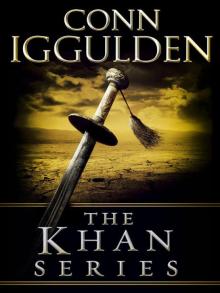 The Khan Series 5-Book Bundle
The Khan Series 5-Book Bundle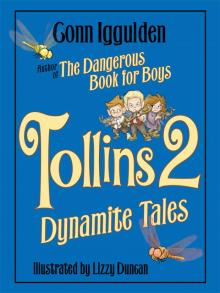 Tollins 2: Dynamite Tales
Tollins 2: Dynamite Tales Tollins: Explosive Tales for Children
Tollins: Explosive Tales for Children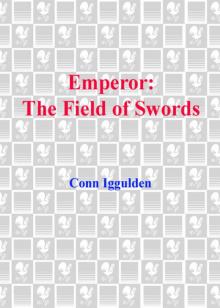 The Field of Swords
The Field of Swords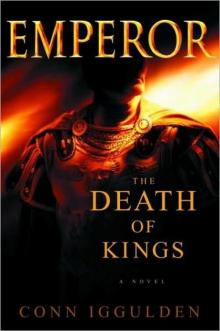 The Death of Kings
The Death of Kings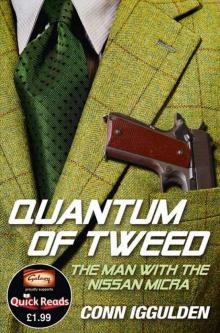 Quantum of Tweed: The Man With the Nissan Micra
Quantum of Tweed: The Man With the Nissan Micra Bones of the Hills
Bones of the Hills Genghis: Birth of an Empire
Genghis: Birth of an Empire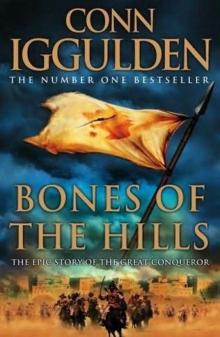 The Gates of Rome
The Gates of Rome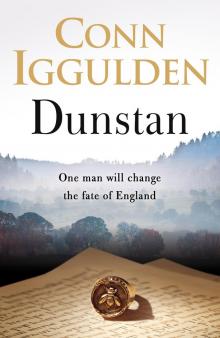 Dunstan
Dunstan Fig Tree
Fig Tree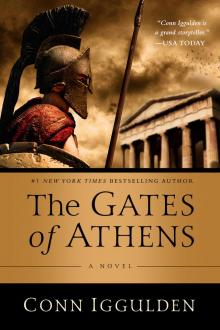 The Gates of Athens
The Gates of Athens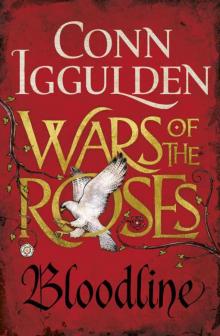 Stormbird
Stormbird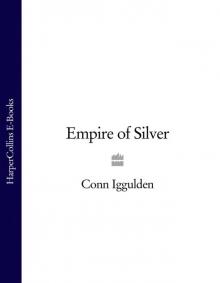 Khan: Empire of Silver
Khan: Empire of Silver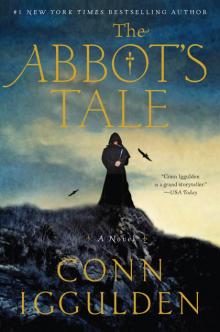 The Abbot's Tale
The Abbot's Tale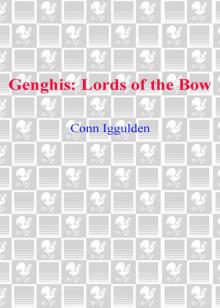 Gengis: Lords of the Bow
Gengis: Lords of the Bow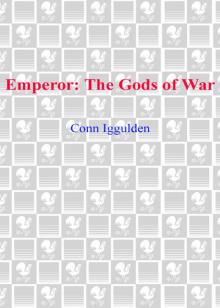 The Gods of War
The Gods of War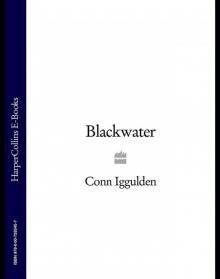 Blackwater
Blackwater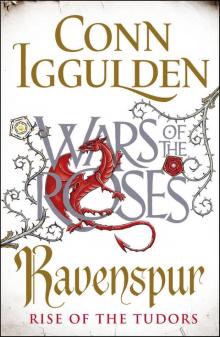 Ravenspur: Rise of the Tudors
Ravenspur: Rise of the Tudors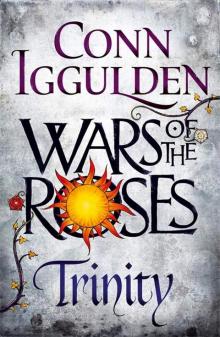 Wars of the Roses: Trinity (War of the Roses Book 2)
Wars of the Roses: Trinity (War of the Roses Book 2)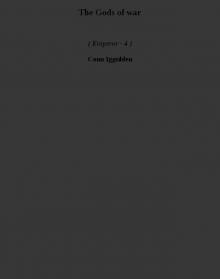 The Gods of war e-4
The Gods of war e-4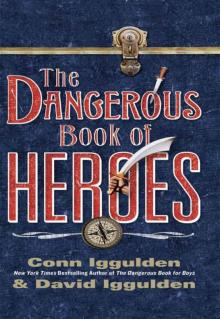 The Dangerous Book of Heroes
The Dangerous Book of Heroes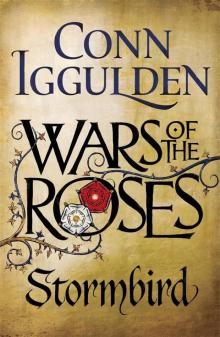 Stormbird wotr-1
Stormbird wotr-1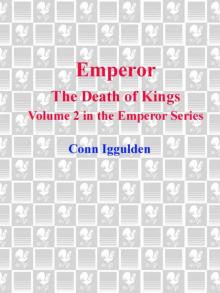 Emperor: The Death of Kings
Emperor: The Death of Kings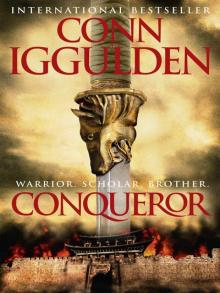 Conqueror (2011) c-5
Conqueror (2011) c-5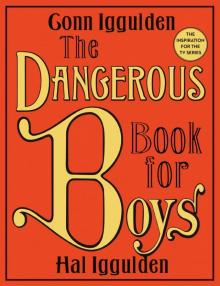 The Dangerous Book for Boys
The Dangerous Book for Boys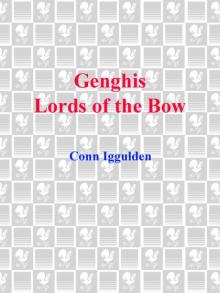 Genghis Lords of the Bow
Genghis Lords of the Bow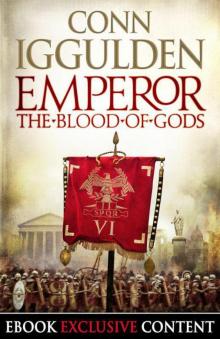 Emperor: The Blood of Gods (Special Edition) (Emperor Series, Book 5)
Emperor: The Blood of Gods (Special Edition) (Emperor Series, Book 5)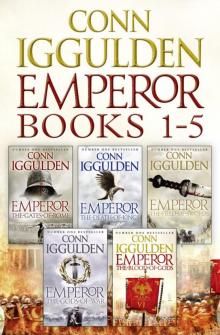 The Emperor Series: Books 1-5
The Emperor Series: Books 1-5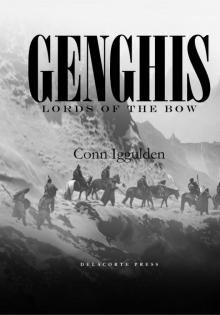 Lords of the Bow c-2
Lords of the Bow c-2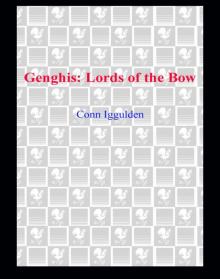 Lords of the Bow
Lords of the Bow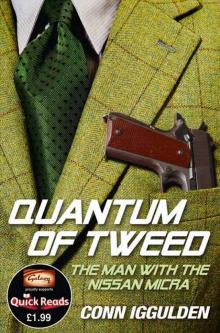 Quantum of Tweed
Quantum of Tweed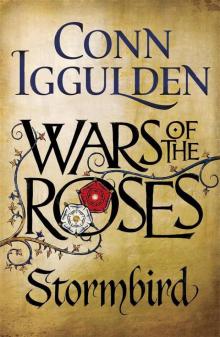 Wars of the Roses 01 - Stormbird
Wars of the Roses 01 - Stormbird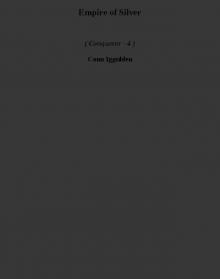 Empire of Silver c-4
Empire of Silver c-4 Birth of an Empire
Birth of an Empire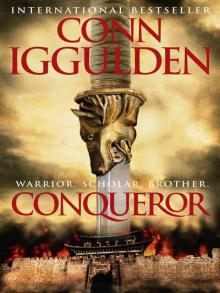 Conqueror (2011)
Conqueror (2011)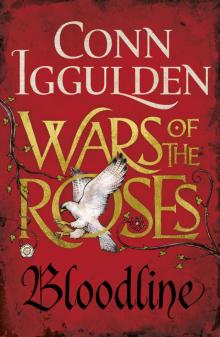 Wars of the Roses: Bloodline: Book 3 (The Wars of the Roses)
Wars of the Roses: Bloodline: Book 3 (The Wars of the Roses) Bones Of the Hills c-3
Bones Of the Hills c-3 Empire of Silver
Empire of Silver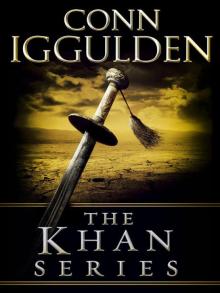 The Khan Series 5-Book Bundle: Genghis: Birth of an Empire, Genghis: Bones of the Hills, Genghis: Lords of the Bow, Khan: Empire of Silver, Conqueror
The Khan Series 5-Book Bundle: Genghis: Birth of an Empire, Genghis: Bones of the Hills, Genghis: Lords of the Bow, Khan: Empire of Silver, Conqueror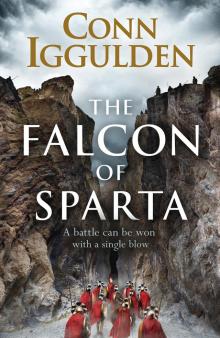 The Falcon of Sparta
The Falcon of Sparta Explosive Tales for Children
Explosive Tales for Children